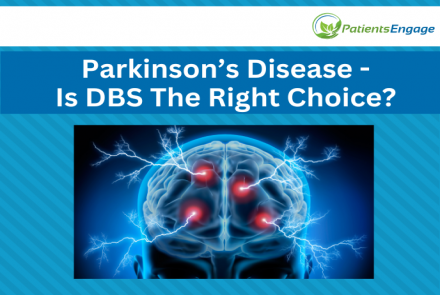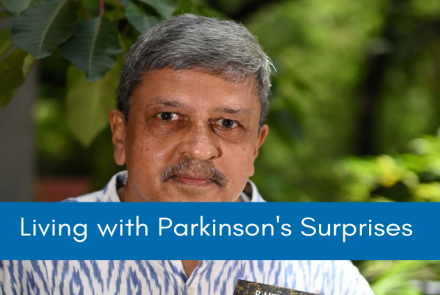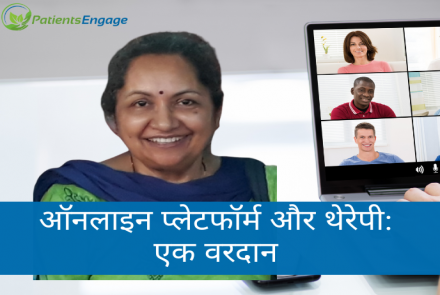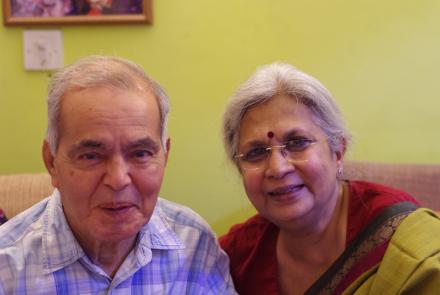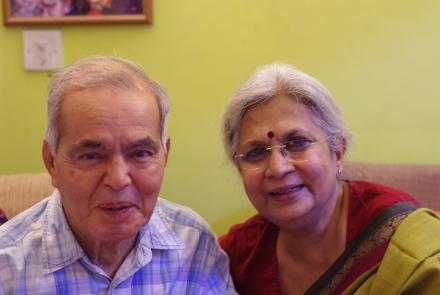
Hallucination and Delusion in Parkinson's
Hallucinations and Delusions are two types of Neuropsychiatric symptoms which affect people with Parkinson’s, and result in disturbance of perception and thought. They can occur due to two reasons - as a symptom of the condition or as a side effect of the medication.
A Hallucination involves a sensation (seeing, hearing, smelling, tasting or feeling) about something that does not exist. It is experienced when the person is in a wakeful state and very real to them. In PwPs, two types of hallucinations are commonly seen - Visual Hallucinations which involve seeing something that is not actually there; or Auditory Hallucinations which involve hearing sounds or voices that do not exist. It could be something as simple as a flashlight or a simple noise or as complex as a person, animal, bizarre situation, or a conversation.
A Delusion is a strongly held thought or belief that is not based on reality. Even though the affected person may be presented with evidence of reality, it is beyond their control/ capacity to change their false beliefs. Certain types of delusions involve the affected person believing that a superior person is in love with them, or that they themselves have some special powers, or that their thoughts are being controlled by others etc. However, in Parkinson’s delusions are mainly of the following kinds - Delusions of Persecution where the person believes that somebody is trying to harm or poison them in some way; and Delusions of Jealousy where the person believes that their spouse or partner is being unfaithful.
Although hallucinations and delusions are more commonly seen in the later stages of Parkinson's, it can (though rarely) be seen in the early stages as well. It is important to note that not everyone with Parkinson's and not everyone who takes the Parkinson's medication will develop these symptoms.
Practical Significance of Hallucinations and Delusions in Parkinson’s and Stigma
Both hallucinations and delusions, pose practical problems for affected PwPs and caregivers. Although it has been found that hallucinations (especially of the visual type) are significantly more common in Parkinson’s than delusions, it is delusions which cause more practical problems and affect daily functioning and therefore, require more immediate attention.
For instance, Delusions of Persecution very often surround the Parkinson’s medication, wherein the PwP believes that he/she is being given extra medication to cause him/her harm; or that the medication being given to them is actually poison. This often leads to avoidance in taking medication and subsequent exacerbation of symptoms.
A person who is experiencing visual hallucinations may act irrationally and that might cause problems and misunderstandings with loved ones. The hallucinations and delusions associated in Parkinson’s may impact a PwPs general emotional state and relationships with family and caregivers and also limit their participation in daily activities.
These symptoms may initially be mild, but tend to gradually increase in frequency and severity. Although these symptoms are common in Parkinson’s, it is still under recognized. Caregivers may often attribute such experiences to poor vision and may not be aware that the person is experiencing a hallucination or a delusion until it begins to disrupt daily life and causes a strain on the patient and caregiver relationship. PwPs experiencing these symptoms may be embarrassed or reluctant to admit them due to the stigma of its strong association with psychiatric illnesses. However, both hallucinations and delusions have a physiological basis and since it can be controlled through medications, it should be reported to the doctor.
Distinguishing Hallucinations and Delusions from other similar Phenomena:
Often hallucinations and delusions are confused with other phenomena such as nightmares, illusions and possession, but it is important to distinguish between these to adopt an appropriate method of treatment.
Nightmares may seem very similar to hallucinations as they are commonly visual in nature and also because hallucinations tend to be more frequent in the night. However, the difference is in the persons state of consciousness, i.e., a nightmare will occur when the person is deep in sleep, whereas a hallucination is experienced in an awake state.
Very often hallucinations are also confused with illusions. The difference is that while hallucinations are not based on any real source; illusions are based on reality, but represent a distorted sense of reality. An example of an illusion is a person mistaking a cloth that is moving due to the breeze to be a ghost. In a hallucination, there would be no object present.
In our culture, phenomena like hallucinations and delusions are also often confused with the Supernatural. These neuropsychiatric phenomena may often be interpreted as possession by ghosts or evil spirits, or it is believed that a person is ‘seeing’ a ghost when he/she is hallucinating. While belief in the supernatural is very deeply embedded and may be difficult to shake off, it is important to be aware of the existence of hallucinations and delusions, so as to ensure appropriate management.
Dealing with Hallucinations and Delusions
Experiencing hallucinations and delusions can be difficult for you. Here are some tips and strategies on dealing with these symptoms:
Reassurance: Stay calm, do not worry, and tell yourself that you are merely experiencing a symptom. Additionally, ask yourself questions to verify whether what you are experiencing is real or not, as this may reassure whether these things can really be present and threatening. For example, you could ask yourself “I am in my own house with my loved ones. Is it possible for a stranger or an animal to enter my house?”
Get medical advice: Visit your doctor or neurologist, as they will be able to ascertain the correct cause of the hallucination/delusion as being either a symptom of Parkinson's or a symptom of another illness or a side - effect of medication, and accordingly advice the course of treatment.
Talk to your loved ones: It is often difficult for others to understand your hallucinations and delusions. Thus, talking to your loved ones about the possible triggers and what helps you can help them to understand your condition better and be patient when dealing with you.
Caregiver Dealing with Hallucinations and Delusions in a Loved One:
Caring for someone who experiences hallucinations and delusions can also be very upsetting and frustrating and can put stress on relationships. Sometimes caregivers find it hard to understand and cope with these symptoms and manage their loved one when he/she is experiencing the hallucination or delusion. Here are some tips and strategies to help you to understand and deal with the symptom:
- Get medical advice with a doctor or neurologist.
- Reassure and explain calmly to the person to make them feel safe. If they cannot retain this information, repeat it when they are calmer. Try to be with them and be supportive to help reduce this fear.
- Be Sensitive: It is best not to argue, laugh, dismiss or challenge what your loved one is reporting related to these symptoms. Do not try to convince them that what they are thinking is wrong. Do not shout at them or make any gestures that may be misinterpreted such as whispering or giggling.
- Do not agree with the content of the delusion or hallucination. For example, if they seem very scared because they believe that someone is against them, you can use statements such as "I understand that feeling like this must be very scary", instead of saying “your wife trying to poison you, it must be so scary for you”, as this will strengthen their false beliefs.
- Be alert and watch for cues that the person may be experiencing hallucinations, such as watching an empty space in the room with eyes darting back and forth, speaking to an invisible person, talking to himself/herself, and appearing to listen to someone when no one is speaking.
- Keep a Diary: This will help to identify whether these behaviours occur at specific times or with particular people, which may aid in making changes to overcome the symptoms.
- Provide a Safe and Calm Environment: Keep sharp and heavy objects that can be used to cause harm to themselves or others away from them. Avoid extraneous noise and certain sounds on TV or radio that cause them stress. It may be helpful that the person has a well lit room. Explain unfamiliar equipment and noise in the environment and let the person know what the normal routine is.
- Involving the person with another activity such as breathing or physical exercises, music, conversations with friends, looking at old photos etc will also help distract their mind away from hallucinations and delusions.
- Dealing with own emotions is important as it is natural to feel upset or angry, if your loved one’s delusion involves being suspicious of you and other family members and he/she threatens or accuses you.
- However, firstly, avoid expressing these feelings openly to him/her.
- Secondly, do not take their accusations personally, as these are symptoms of their illness.
- Thirdly, maintain a distance at which that they feel comfortable and less threatened. When required, speak in a calm, reassuring voice to make them feel that you are not harmful.
Awareness of hallucinations and delusions will help with the better management of Parkinson’s and therefore it is of utmost importance for PwPs and caregivers to address these symptoms.


